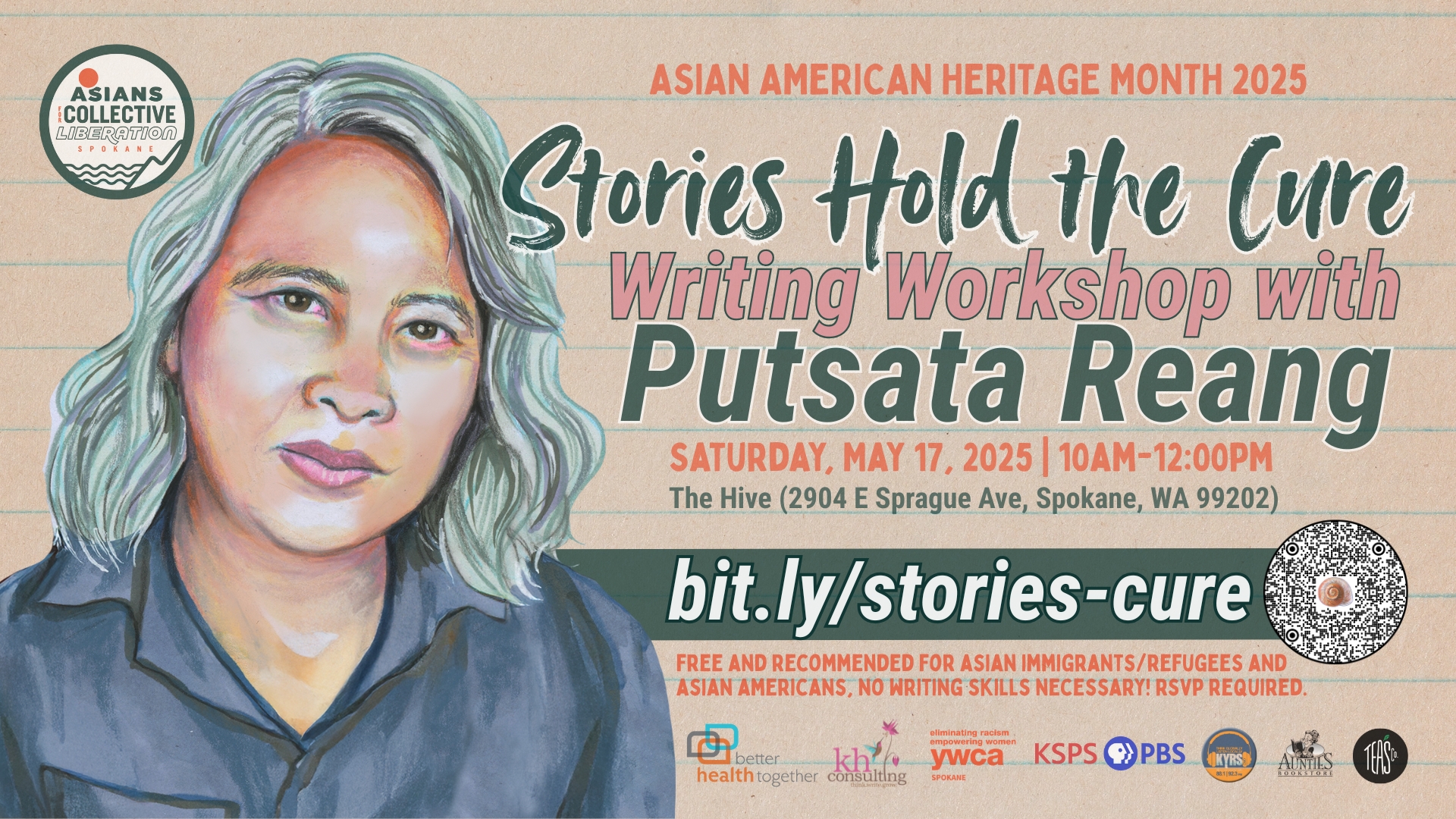Q: What traditions or practices from your cultural heritage do you hold closest to your heart, and why?
One of the most important practices in the Khmer culture is to bring sweets to your elders when visiting. I love this tradition because it is such a simple but meaningful gesture of love and respect for our elders. My mom taught me this when I was very little, so every time I used to visit my late grandfather, I would bring him oranges or a box of mangoes or chocolates. Now, I do this for my parents.
Q: What message or “letter” would you want to send forward for future generations to hear?
Your voice is your power. Step into your power and use your writing to say what you need to say. The world needs your stories, so tell them.
Q: How can storytelling serve as a powerful tool for activism, healing, and community-building—especially in moments when we’re navigating identities, experiences of “otherness,” or cultural misconceptions?
My mother has this saying: “One chopstick is easy to break but a handful of chopsticks is unbreakable.” I like to swap out the word “chopstick” for story… so that “One story is easy to break, but a handful of stories is unbreakable.” To me, this is the power of personal storytelling. My single story will resonate so much more and be more powerful if others also tell their stories. In that way, we can rewrite the narratives that have been imposed upon us as members of the AAPI community. Collectively, we can build community, and stand up and speak out when more of us are willing to lend our voices.
Q: From your experience, what are some of the common barriers that prevent Asian Americans from participating more fully in civic or political spaces—and how can we begin to break those down?
Part of what I see is that there are few Asian Americans in civic and political spaces, and as the saying goes, when you can’t see it, you can’t be it. If we can find a way to support more members of our AAPI community to get involved in politics, that will help young people see what is possible and hopefully turn the trend of limited participation in civic and political spaces in our AAPI community into one in which we are more fully engaged as citizens of our communities and our country.
Q: What advice or encouragement would you offer to Asian American youth who want to get involved but feel caught between different identities or cultural expectations?
Claim your selfhood. One day, your parents will die. And if you have lived a life for them instead of for yourself, those years will become lost years and you will not be able to get them back. As scary and painful and challenging it is to get activated and be involved in meaningful ways in your community, consider the cost of silence–to your family, to your culture and your countries of origin. We are told not to “rock the boat” but how can we be a part of creating positive change if we sit still as passengers on the ride? Figure out what you stand for and stand, in spite of cultural expectations. We were not made for silence.
